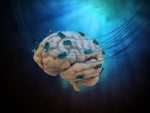How Much Does Parkinson’s Disease Change Someone’s Personality?
Written by |

Many Parkinson’s caregivers report seeing changes to their loved ones as the disease progresses. Some people experience more irritability. Others might see apathy. Maybe it’s just that there’s been a subtle adaptation to how they experience the world.
Since my dad’s diagnosis in 2013, I’ve definitely seen changes in him. But I wonder if it was the disease that caused them, or is time just changing my dad’s brain?
I know that I’m not the same person I was a decade ago. The way I experience my life is calmer and more calculated. So, why would it be odd that my dad has pumped the brakes in the past few years? Is it a strange occurrence that’s happening in the tissues of his brain? Or is his experience, which is certainly outwardly affected by Parkinson’s disease, causing these adaptations?
Change from deep brain stimulation
When Dad received deep brain stimulation (DBS) in 2019, we worried that not all of the changes he’d experience would be positive. After all, a surgeon was going to drill a hole in his skull. What were the chances that he would be the same person when he emerged from anesthesia? He could lose pivotal connections in his brain. He could lose pieces of who he was.
A study published in the journal Parkinson’s Disease in 2015 found that relatives of Parkinson’s patients noticed a decrease in premeditation before actions in their loved ones following DBS, which essentially means greater impulsivity. This suggests, at least according to this study, that DBS surgery could have an impact on one’s ability to plan their actions. The same study noted that the patient’s ability to control their emotions after surgery could change.
When my dad came out of surgery, he was worried. It was as if he’d been gripped by a bout of panic, and there was no pumping the brakes. He’d chosen to receive the surgery, and nothing he did now could change the outcome. He feared that it might’ve done more harm than good. He worried that his tremors would worsen, or that he’d lose even more abilities than he’d already lost. I worried that I’d lost pieces of my dad.
Over the next few months, Dad’s nerves calmed. He realized the surgery had positive effects, although they were short-term. Instead of focusing on the things we might’ve lost, we began to look at the gains. He noticed his dyskinetic symptoms had almost entirely disappeared, which is the symptom he’d asked the surgeon to target when they began meeting.
What causes personality changes?
Because the brain substantially affects our personality, changes to it can influence who we are. How one thinks, experiences emotions, and enacts certain habits can be seen as demonstrations of their personality. As Parkinson’s disease progresses, it frequently affects memory and movement, which can change how a person functions.
Many caregivers note that their loved one with Parkinson’s experiences heightened anxiety and depression throughout the course of their disease progression, and it’s possible that these feelings can contribute to personality changes. My dad has experienced changes in his anxiety levels, and I suspect there have been chapters of depression as well. But I don’t think his personality has changed because of his battles with these symptoms. He’s his same old comedic self, passing time by telling jokes and watching local wildlife.
I’m not sure he’s the same person he was before diagnosis, but I don’t know if that’s due to DBS or Parkinson’s disease. We’re all fluid. We change with the tides and adapt over time. Who is to say that the changes my dad sees are a result of his disease?
One thing I have noticed is that he doesn’t jump at the opportunity to expand his comfort zone anymore. He’s perfectly content doing the simple things he chooses to do every day. But even in this display of change, he seems to remain himself. I don’t return home wondering where the man who raised me has gone. Instead, I kick back and watch a movie with him, just like we’ve always done.
***
Note: Parkinson’s News Today is strictly a news and information website about the disease. It does not provide medical advice, diagnosis or treatment. This content is not intended to be a substitute for professional medical advice, diagnosis, or treatment. Always seek the advice of your physician or another qualified health provider with any questions you may have regarding a medical condition. Never disregard professional medical advice or delay in seeking it because of something you have read on this website. The opinions expressed in this column are not those of Parkinson’s News Today or its parent company, Bionews, and are intended to spark discussion about issues pertaining to Parkinson’s disease.




RAY BECK
I was diagnosed with Parkinson’s disease four years ago. Believe it or not I am a 90 year old bodybuilder. I use weight training with the heaviest weight I can handle to activate the dormant muscle cells. I suggest strongly that research should be done on this type of activity to see how it affects PD.. naturally this has to be a progressive program starting with light weights and working over the weeks to heavier weights. This also applies to other resistant programs such as cables and pullies. I have gained size and strength over the last few months without the use of steroids. I can send a video of me using heavy weights such as the one arm row with 50 pounds and pull down with 140 pounds etc.
Zing
Ray Beck, that is interesting! I had been just wondering if it would help, but I'm unsure where to start. I thought of maybe online courses? Do you really feel it's helping?
John Carlson
Maybe you can help . I'm by no means a bodybuilder, but I've been in fairly good shape at 71.
By chance I had a chance to perform some very strenuous lifting . I was wondering, if I could feel better at lifting for an extreme time, constantly, would I overcome from exhaustion or improve my stamina?
Doris
Sooo awesome ?????
Elizabeth Rickman
My gramddaughter is 11 years old. She has a form of Parkinson's called Dopa-Responsive-Dystonia. It is a mutation of the Gch1 gene. She takes a medicine called Levadopa. This medicine is a miracle for her. She has been in a wheelchair her since she was old enough to sit in one.
Betty Neely
My Husband was Diagnosed In 2017. He has Tremor's. Some days are good and some Bad. So we work out Everyday. We Do LSVT,. Boxing, walking,. We also put all our Trust In God. Thank your! Betty Neely. Have a Blessed Day.
Pam Kenniston
My husband was diagnosed with PD in 2003 and was fortunate to connect with a neurologist who felt he was an ideal candidate for DBS. He had that surgery in 2013 and as the author suggests, there were some personality changes after the surgery. He lacked impulse control and is not the same person as before the surgery. While he has definitely had a positive benefit from it, those of us on the outside notice the changes in his personality more than he does (or cares to admit). I think this is something neurosurgeons should discuss with the patient and family prior to the procedure as it comes as quite a shock.
Tom Ferrill
My wife has Parkinson's for about 7 years. She halucinates everyday, sometimes it is so bad I can hardly stand it... Accusing me of having another girl/women in our bed with us... Oh God I plead every day. 44 years I have always been faithful... Of the replies I read, I would prefer their experience over what we go through... It is a horrible disease. We have tried so many different meds and none have helped... We go to Vanderbilt in Nashville because 3 different ones in Knoxville couldn't help her. Knoxville has terrible neurologist... They couldn't help us... Plus she drools all day and night. Change bibs and shirts several time per day, sheets everyday... Botox injections sometimes help the drooling but not always... Only God can help...
Michael Brooks
Can you explain dps surgery
Anika Stewart
I am 45 years old. I noticed tremors in my left thumb about a year ago. My doctor just started me on Gabapentin 3 times a day. My question is will these tremors lead to PD? Also I am adopted so I don't know any of my family medical history.
CHRISTOPHER T FRANSON
Just the thumb is to little information in my mind. There's parkinsonism could be a lot of things. Parkinson's takes on so many faces and so impetuous. Even a start at any age is never a death sentence. Diagnosed 2011, DBS 2016. So 10 years and I think I've been lucky. There are so many factors to PD, and changes so much. It can be dormant for years hit like a mack truck, then go dormant again. Not progressing, or slowly slipping down hill.
Stress is the main demon.
Laughter comedy or whatever possible keeps you with a twinkle in your eyes.
Billy Barry
I find your comment section so helpful with it’s many and varied symptoms experienced by different PD patients. As a friend of a PD patient it helps me to deal with his symptoms as they arise. Keep up the good work.
Christa Davis
My mom has Parkinson's. She was diagnosed about 4 years ago. She is currently 68 yrs old. She has minimal tremors that are low in her left leg/foot. What is the worst is her intolerance to the meds. Almost any of the meds she takes for the disease give her horrible side effects and meds she used to take now interact with the Parkinson's meds. We, like Tom Ferrill, have seen every neurologist in Knoxville TN. The docs dont understand why she is having such an intolerance tot he meds. The meds make her very sick, give her headaches, stomach issues, and BP issues. We recently visited Vanderbilt in Nashville. They have suggested a gel form of med that is given continuously via a port to stop the off periods. We also will be seeing the DBS team there to see if she is a candidate for DBS. I have some fear about whether my mother can handle that surgery. I also am concerned that will the surgery help with the personality changes? My mother has changed drastically. She is depressed (but cant take antidepressants due to the reaction with the Parkinson's meds), she is irritable, anxious ALL the time, mood swings, doesnt sleep (exerbating the mood changes), accuses my stepdad and myself of trying to control her, loses track of time, and the list can go on and on. My concerns about the physical part of the surgery are one thing but will the surgery help with these other issues? I want my mom to have a better quality of life. She has worked her entire life and now retired and cant enjoy it.